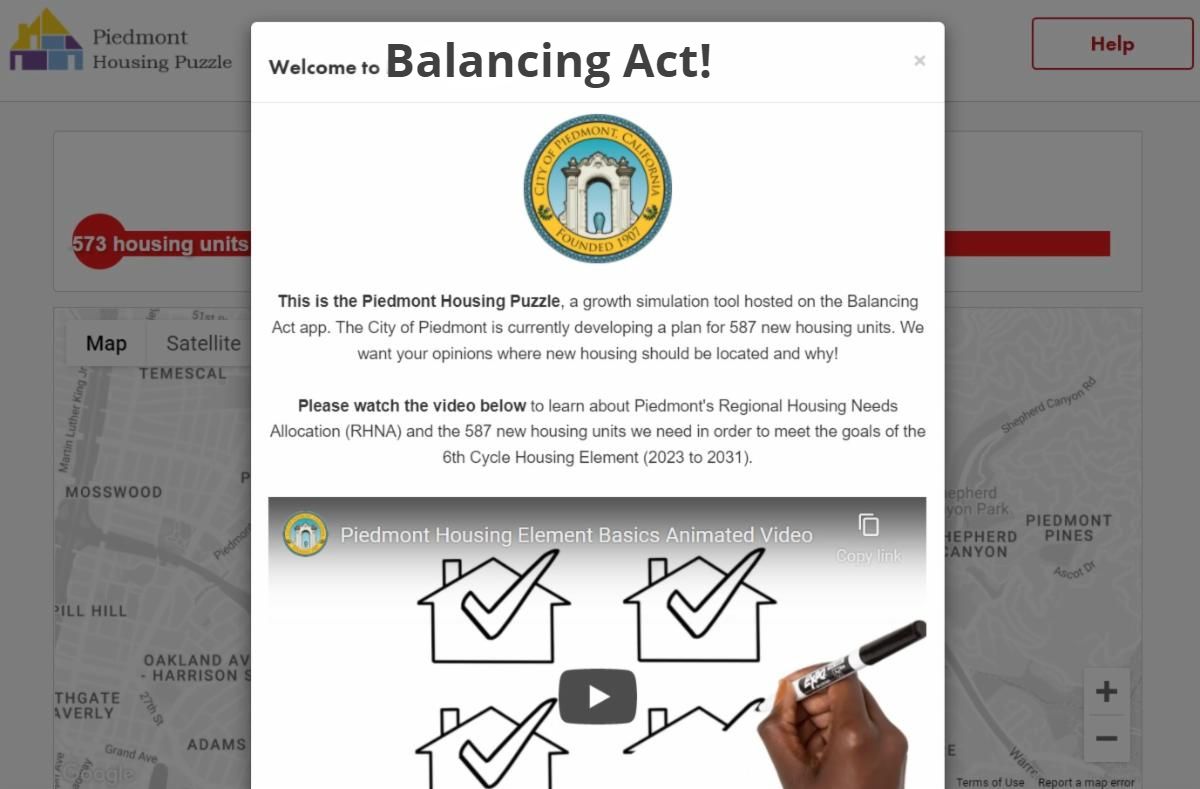Jan 30 2020
State laws ending single-family zoning have a great impact on Piedmont’s parcel tax system and method of supporting city services.
Piedmont, one of California’s most heavily taxed cities, proposes and taxes three housing units on single-family parcels as though there was just one household – with no commensurate parcel tax to cover the public service needs (parks, recreation, library services, police, fire) of the additional families.
On March 3, 2020, Piedmonters have a renewal of the City parcel tax on their ballot, Measure T, found at the end of Piedmont ballots. As written, Measure T does not distinguish between a one family dwelling unit on a single-family parcel and a parcel that has two or three dwelling units on a single-family parcel.
New State laws impacting “Single-family” residential parcels are intended by the State of California to result in many new dwelling units in former single-family zoned housing by adding one or two units – up to three residential units – on a single parcel. The March 3rd parcel tax, Measure T, does not reflect this new reality as parcels will be taxed on the basis of one residence on a parcel in the “Single-family” category.
Piedmont is financially impacted by the new housing requirements made at the state level increasing densification. Piedmont’s system of supporting itself has for decades been based on taxing single-family properties in Piedmont containing one single-family residence/household on a parcel.
Many California cities have increased their sales taxes to gain needed revenue. Piedmont, zoned primarily for “single-family” residences, has relatively little commercial property and thus very little opportunity for increased sales tax revenue. Voter approved parcel taxes in Piedmont, property transfer taxes, and increased property valuations have allowed Piedmont to prosper.
Those parcels with the newly allowable 3 housing units on their property will pay no more for the densification of their properties despite windfall income without additional taxes for the service needs of additional families.
READ the Measure T Tax Tables for Piedmont Basic Municipal Service>HERE.
Increasing the number of households in Piedmont will require additional services – street safety, parking, fire protection, public schools, city administration, public open spaces, police services, etc. – without commensurate increases in revenue.
Push for more affordable housing in California.
In 2019, the population outflow from the State of California was more than 200,000 citizens relocating to other states. The figure reported by the US Census Bureau is 203,414. While California is expected to lose a Congressional Representative after 2020, Texas may gain three Congress persons due to dramatic population increase.
“In the 1970’s citizen activists [in CA] created urban growth boundaries and land trusts to preserve open space and delicate coastal habitats.” Following Prop 13, “Cash hungry cities opted to zone for commercial uses, which would generate sales taxes, instead of affordable housing.” (New York Times 12/1/19)
With the press of political demands for more housing, the State of California has taken a dramatic step to remove restrictions on Accessory Dwelling Units (ADUs). When ADUs are added to single-family zoned parcels, many requirements have been eliminated: setbacks, floor area ratios, view protections, parking, owner occupancy, public participation, notification, and other factors.
School taxes.
In November 2019, Piedmonters voted overwhelmingly by over 82% to tax individual parcels. Every parcel has the same tax basis of approximately $2,700. An additional tax based on square footage of living space is also added to individual parcel taxes. The taxation needs for the school parcel tax were based on expected student populations.
READ the approved 2019 Piedmont School Parcel Tax Measure HERE.
Unlike San Mateo, the Piedmont City Council accepted the new State laws and has shown no effort to enforce the City Charter which gives Piedmont voters the right to have a say in what happens to Piedmont’s zoning. Further, the Piedmont City Council took no action or policy position on the various housing initiatives put forth in Sacramento that take away local laws even though the legislation was contrary to Piedmont’s City Charter.
Piedmont’s Charter was written to guarantee Piedmont voters the right to control many aspects of the City including elections, finances, budgets, police and fire departments, public schools, public borrowing, zoning, etc.
Charter cities in California have lost significant local authority over land use and public participation in decisions.
The recent court decision in a San Mateo County Court to uphold and acknowledge San Mateo’s City Charter regarding a housing project could eventually impact Piedmont. The San Mateo Court decision does indicate a judicial act protecting Charter City rights.
The Piedmont City Council per the City Charter has the responsibility of enforcing the City Charter and putting before Piedmont voters recommended changes to zoning – single-family, multi-family, commercial, and public zones, yet nothing has been placed before the voters. Other City Charter changes and amendments were on a recent ballot and approved by Piedmont voters.
Piedmonters for over a century held control over land use decisions, police and fire services, public schools, parks, etc. through the City Charter.
Affordable housing in Piedmont
In Piedmont, the abandoned PG&E property on Linda Avenue next to the Oakland Avenue Bridge, was noted in Piedmont’s General Plan, as an optimal location for affordable housing – close to schools, transportation, stores and parks. Disregarding Piedmont’s General Plan and Piedmont’s City Charter, the City Council permitted a number of market-rate townhouses to be built on the former PG&E site without including any affordable housing and illegally rezoning the property from public usage to the multi-family zone without a citizen vote on the rezoning, as required by Piedmont’s City Charter.







